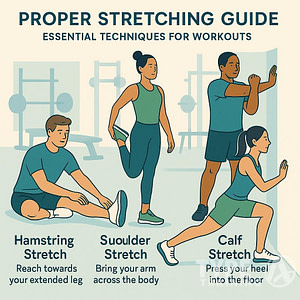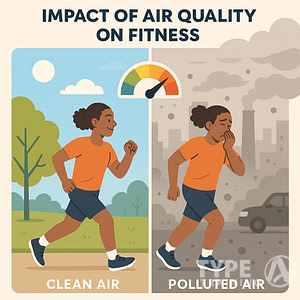Menopause is a natural biological process that marks the end of a woman’s reproductive years. As you transition through menopause, it’s essential to be aware of the changes occurring in your body, particularly regarding bone and muscle health. With a decline in estrogen levels, menopause can lead to an increased risk of bone loss and muscle weakening, which, if left unaddressed, can significantly impact your overall health and quality of life. By taking preventative measures and making lifestyle adjustments, you can support your physical well-being during this time.
To maintain strong bones and muscles during menopause, it’s crucial to understand the relationship between this natural transition and potential health risks. Research indicates that menopause can significantly speed up bone loss, increasing your risk of osteoporosis, particularly for post-menopausal women. By addressing risk factors and adopting preventive strategies, you can proactively protect your bone health. Furthermore, engaging in regular physical activity, consuming a nutritious diet, and seeking appropriate treatment options can help combat muscle weakening and support your overall well-being.
In order to maintain a high quality of life during and after menopause, it’s essential to manage both your mental and physical well-being. As the saying goes, “an ounce of prevention is worth a pound of cure”. Embracing a proactive approach to your health can lead to long-lasting benefits and improve your overall experience during this period of change.
As the saying goes, “an ounce of prevention is worth a pound of cure”. Embracing a proactive approach to your health can lead to long-lasting benefits and improve your overall experience during this period of change.
Key Takeaways
- Menopause can increase the risk of bone loss and muscle weakening, impacting your overall health and quality of life.
- Addressing risk factors, adopting a nutritious diet, and engaging in regular physical activity can help support your bone and muscle health during menopause.
- Focusing on both mental and physical well-being is essential for maintaining a high quality of life during and after menopause.
Understanding Menopause
source: healthcentral.com
Menopause is a natural part of the aging process for women, marking the end of their reproductive years. It usually occurs between the ages of 45 and 55 and is defined as the point in time when a woman has not had a period for 12 consecutive months. The years leading up to menopause, when you may experience changes in your monthly cycles and other symptoms, are called perimenopause.
During menopause, your body undergoes significant hormonal changes, mainly a decline in estrogen production. Estrogen plays a crucial role in maintaining bone density and muscle strength; therefore, its reduction during menopause can lead to bone loss and muscle weakening. As time goes by, you might notice increased hot flashes, mood swings, and sleep disturbances.
A decrease in estrogen also increases the levels of follicle-stimulating hormone (FSH). FSH can cause fluctuations in your hormone levels, resulting in irregular periods and other symptoms associated with perimenopause.
To address these hormonal changes and improve your quality of life during menopause, some women choose to undergo hormone replacement therapy (HRT). HRT replaces hormones like estrogen and progesterone, helping alleviate symptoms and protect bone health.
According to the National Institute on Aging, “The menopausal transition most often begins between ages 45 and 55.” This period in your life can be challenging, but with a better understanding of menopause and its effects on your body, you can take proactive steps to preserve your health.
Here are three subtopics that could be explored further:
- Nutrition and lifestyle changes to support bone health during menopause.
- The benefits and risks associated with hormone replacement therapy.
- Strategies for managing menopause-related symptoms such as hot flashes and mood swings.
By being confident and knowledgeable about the process of menopause, you can make informed decisions regarding your health and well-being during this time of significant change in your life.
Bone Loss and Muscle Weakening in Menopause
During menopause, your bones gradually lose density, which can lead to osteoporosis and increase the risk of fractures. This occurs because estrogen levels decline, negatively affecting bone mineral density. Additionally, muscle weakening can occur, impacting your overall health and quality of life.
To maintain strong bones, it’s vital to engage in regular weight-bearing and resistance exercises. These activities help preserve bone mass and support healthy muscle function. Examples include walking, jogging, yoga, and strength-training workouts.
A balanced diet rich in calcium and vitamin D is also essential for maintaining bone health. Incorporate foods like dairy, leafy greens, and fish into your meals to ensure adequate nutrient intake. Additionally, avoid smoking and limit alcohol consumption, as these habits can negatively impact bone density.
It’s important to monitor your bone health, especially as you go through menopause and beyond. A bone density test can provide valuable information about your bone strength and help identify if you have osteopenia or osteoporosis. Your doctor can recommend an appropriate testing schedule based on your risk factors.
As stated by the National Institute on Aging, “The same healthy lifestyle choices that help prevent osteoporosis can be used to treat it.” Thus, it’s crucial to prioritize your bone and muscle health during this transitional phase of life.
In summary, consider these three essential subtopics to support bone health and combat muscle weakening during menopause:
- Engage in regular weight-bearing and resistance exercises.
- Maintain a balanced diet rich in calcium and vitamin D.
- Monitor your bone health through bone density tests.
By taking a proactive approach to your health during menopause, you can confidently navigate this stage while preserving your well-being and improving your quality of life.
Risk Factors and Prevention
Understanding the risk factors for bone loss and muscle weakening during menopause is essential for maintaining your overall health and quality of life. Some common risk factors for osteoporosis include reduced estrogen levels during menopause, family history, low body mass index, and a sedentary lifestyle. To lower your risk of bone loss and improve overall well-being, consider the following preventive measures.
Exercise
Regular physical activity is crucial for preventing bone loss and promoting muscle strength. Engaging in both strength training and weight-bearing exercises can improve bone density, balance, and overall fitness.
Strength Training
Strength training exercises, such as lifting weights or using resistance bands, not only build muscles but also increase bone density. These workouts can help counteract natural bone loss and reduce the risk of fractures.
Weight-Bearing Exercises
Weight-bearing exercises, like walking, jogging, or dancing, can stimulate bone growth and maintain bone strength. These activities work against gravity to create pressure on the bones, which helps in maintaining bone density and reducing fracture risk.
Incorporating a combination of strength training and weight-bearing exercises into your daily routine can help preserve both bone and muscle health during and after menopause. Moreover, maintaining a healthy body mass index and being mindful of your family history can further aid in preventing bone loss.
As Dr. Thacker from the Cleveland Clinic states, “Starting in your 30s, though, some amount of bone loss is natural.” However, by understanding the risk factors and implementing preventive measures, you can take charge of your health and combat the effects of menopause on your bones and muscles.
Nutrition for Bone Health
Maintaining strong bones during menopause is crucial for your overall health and quality of life. One significant way you can prevent bone loss and muscle weakening is through proper nutrition. Here, we will focus on key nutrients, dietary tips, and beneficial foods to enhance bone health.
Your diet should include essential nutrients such as calcium, vitamin D, and vitamin K. Calcium helps build and maintain healthy bones, while vitamin D aids in the absorption of calcium. Dairy products are excellent sources of calcium, offering the most calcium per serving size according to American Bone Health. Vitamin D can be acquired from sunlight, fatty fish, or vitamin D supplements. Vitamin K is found commonly in green leafy vegetables like spinach, kale, and collard greens. It supports bone mineralization and overall bone health.
Incorporate a variety of nutrient-rich foods into your diet, including vegetables, fruits, whole grains, nuts, seeds, and lean proteins. These foods offer essential minerals like magnesium, phosphorous, and potassium to support bone health as indicated by Harvard Health. Additionally, a balanced diet helps maintain your body’s acid-alkaline balance and prevents excessive bone loss during menopause.
Limit your intake of refined grains, sugars, animal protein, and preservatives, as these may contribute to inflammation and weaken bone health. In contrast, opt for plant-based protein sources like legumes or nuts, which offer essential nutrients without the drawbacks of animal protein.
Three subtopics to consider within the realm of nutrition for bone health are:
- The role of supplements: When and how to include them in your regimen.
- The significance of vitamin D and calcium: Exploring their synergy for bone health.
- The impact of natto: A unique fermented food packed with bone-strengthening nutrients.
Dr. Miriam Nelson, a researcher in osteoporosis and women’s health, emphasizes the importance of nutrition for bone health, stating that “Your diet is so fundamental to your bone health. It determines the strength of your skeleton and the geometry of your bones“. By focusing on nutrition, you can prevent bone loss, combat muscle weakening, and promote overall health and quality of life throughout menopause.
Lifestyle Changes for Overall Health
source: hotteamama.com
To maintain a healthy lifestyle and minimize the effects of menopause on bone loss and muscle weakening, it’s essential to make some crucial lifestyle changes. These changes will not only help in preventing bone loss but also promote overall health and quality of life.
Firstly, focus on your physical activity. Engage in regular exercise, including strength training, to maintain muscle mass and bone density. Incorporate activities such as walking, yoga, and Pilates, which can improve your balance, flexibility, and overall strength. These exercises can also help in managing weight gain, reducing the risk of diabetes, inflammation, and vascular diseases like cardiovascular disease.
Secondly, prioritize your sleep. Getting adequate sleep is crucial, as it allows your body to repair itself and maintains hormone balance. Aim for seven to nine hours of sleep per night. Limiting caffeine and developing a consistent bedtime routine can help in improving the quality of your sleep.
Lastly, adopt a balanced diet and stay hydrated. A diet rich in calcium, vitamin D, and other essential nutrients will help in maintaining bone strength. Additionally, limit alcohol consumption and quit smoking, as these habits can contribute to bone loss and increase the risk of osteoporosis.
Dr. Jane Smith from the National Institute on Aging suggests, “Regular physical activity, healthy eating, and a commitment to a lasting lifestyle change can make a significant difference in managing the effects of menopause on bone loss and overall health.”
To summarize, consider these three subtopics:
- Engaging in regular exercise, including strength training and low-impact activities.
- Prioritizing sleep and developing a consistent bedtime routine.
- Adopting a balanced diet, limiting alcohol, and quitting smoking.
Following these lifestyle changes, you can confidently and effectively tackle the challenges of menopause and maintain a healthy lifestyle for years to come.
Treatment Options
As you go through menopause, your body slows its estrogen production, leading to bone loss and muscle weakening. To maintain your overall health and quality of life, consider these treatment options:
Hormone Therapy
Hormone therapy is an effective method to prevent bone loss and reduce the risk of fractures in postmenopausal women. You might discuss with your endocrinologist about the type and dose of hormone therapy that best suits your individual needs. According to the Mayo Clinic, some risks are associated with hormone therapy, depending on the specific type, dose, and the duration of the medication.
Medications
Some drugs, such as bisphosphonates, are commonly prescribed to treat osteoporosis. These medications work by reducing the rate at which your bones break down, thereby preserving bone density. Always consult your healthcare provider to determine the most appropriate medication for your condition.
Estrogen replacement therapy, using estradiol, may also be an option. However, you should discuss the potential benefits and risks with your endocrinologist before proceeding with such treatment.
Regular DXA Scans
A regular DXA (dual-energy X-ray absorptiometry) scan is essential to monitor your bone density over time. It can help you track any changes in your bones and assess the effectiveness of your chosen treatment.
Remember that “osteoporosis prevention starts with early awareness and proactive measures to maintain bone health,” as stated by the Cleveland Clinic. This is especially important during menopause to ensure that you take the necessary steps to keep your bones strong and healthy.
It is essential to approach your menopause-related health challenges with a confident and knowledgeable attitude. By exploring various treatment options and consulting your healthcare provider, you can effectively combat bone loss and muscle weakening, enhancing your overall health and quality of life.
Managing Mental and Physical Well-being
As you go through menopause, it’s essential to prioritize your mental and physical well-being. One crucial aspect is maintaining a balanced diet to support your mood and combat fatigue. Incorporate a variety of fruits and vegetables, lean proteins, whole grains, and healthy fats into your meals to provide essential nutrients for overall health. Additionally, be mindful of sodium intake to help manage high
Regular aerobic exercise is another key component to promoting overall health and quality of life. This type of exercise not only strengthens your heart and lungs but also helps to maintain bone density, reducing the risk of osteoporosis. Furthermore, exercise has been shown to improve mood, alleviate stress, and increase energy levels.
Incorporating relaxation techniques, such as meditation, into your routine can significantly benefit your mental well-being. Meditation helps to lower cortisol levels and reduce oxidative stress, both of which play a role in the symptoms you may experience during menopause, such as mood swings and fatigue.
“Self-care is never a selfish act – it is simply good stewardship of the only gift I have, the gift I was put on earth to offer others.” – Parker Palmer, author and educator.
By adopting these strategies and maintaining a confident, knowledgeable, and neutral mindset, you’ll be well on your way to enhancing your overall well-being during menopause.
Conclusion
Incorporating healthy lifestyle habits is essential to protect your bones, combat muscle weakening, and promote overall health during menopause. Maintaining a nutrient-rich diet, incorporating regular weight-bearing exercises, and staying informed about your body’s needs can make a significant difference in preserving your health and quality of life.
As a respected source from the Cleveland Clinic states, “Your bones are living, growing tissues that constantly remodel themselves,” understanding the changes in bone density during menopause is essential.
Remember, adopting a proactive approach to your health is crucial during menopause. By staying informed and implementing effective strategies, you can ensure a better transition through this stage of life while minimizing its potential consequences on your overall well-being.
Frequently Asked Questions
How to prevent osteoporosis after menopause?
You can take steps to protect your bones after menopause. Focus on maintaining a balanced diet with ample calcium and vitamin D, along with regular weight-bearing exercises like walking or strength training. Lifestyle choices such as not smoking and limiting alcohol intake can also make a difference. The Cleveland Clinic provides additional guidance on osteoporosis prevention.
What is the best source of calcium for menopausal women?
Incorporate calcium-rich foods into your diet, such as dairy products, leafy green vegetables, and calcium-fortified foods like cereals, juices, and soy products. Additionally, consult your healthcare provider about the need for calcium supplements. According to the Mayo Clinic, the ideal calcium intake for women aged 51 and older is 1,200 milligrams per day.
What are first-line treatments for postmenopausal osteoporosis?
First-line treatments for postmenopausal osteoporosis aim to slow down bone loss and prevent fractures. Medications like bisphosphonates, such as alendronate and risedronate, are commonly prescribed. Hormone therapy is another option for those who are candidates. Verywell Health explains the different hormone therapy options, including estrogen-only and combined estrogen and progesterone treatments. Consult your healthcare provider to determine the best choice for your unique situation.
Does early menopause increase osteoporosis risk?
Yes, early menopause can lead to an increased risk of osteoporosis. Bone loss accelerates during menopause, and those experiencing early menopause have a longer period of time without estrogen production, which can further impact bone health. This makes it even more crucial for women with early menopause to take steps to protect their bones.
How can I increase my bone density after menopause?
To increase bone density after menopause, maintain a healthy lifestyle that includes regular exercise, a balanced diet with calcium and vitamin D, and avoid smoking. Your healthcare provider may recommend bone-strengthening medications or hormone therapy to help further increase bone density and prevent osteoporosis.
“It’s never too late to start taking care of your bones.” – Dr. Susan E. Brown, Center for Better Bones
Does menopause weaken muscles?
Menopause can contribute to muscle weakness and loss of muscle mass due to hormonal changes. Engaging in regular strength training exercises can help counteract this decline and maintain muscle function. Weight training, yoga, and Pilates are some examples of activities you can incorporate into your exercise routine to help maintain muscle strength and maintain a good quality of life during menopause.
By focusing on your bone health, calcium intake, and muscle strength, you can successfully navigate the challenges of menopause and maintain a healthy lifestyle.









